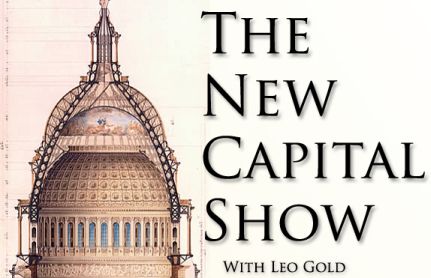Lipstick on a Pig
Abby and I sat on one of the new elegant bridges spanning US 59, what was once a country highway, now an Amazon-wide multi-lane ribbon of concrete carrying all manner of gasoline-powered vehicles. For her, a two year old, it’s mesmerizing to watch the headlights and taillights pass underneath, the hypnotic monotony that is one of America’s largest rush hours. What I notice, though, is the sound – an ongoing collective roar like a mechanized wild snake. It’s loud, and the air is not particularly pleasant. A couple of years ago, the mid-century raised freeway near our house, the kind that was rammed through many inner cities from New York to Chicago to LA, was taken down and depressed below grade, turning what were dingy vagabond underpasses into suspension bridge overpasses. No question, it’s been a great improvement. And with landscaping all around the banks of the motorized river, for a moment you might even think it’s enough.
But sitting on the bridge over Freeway 59 is not like sitting on London Bridge over the Thames, or the Ponte Vecchio over the Arno in Florence, or over the Seine in Paris. In Houston, we have created rivers of automobiles, of sound and pollution, and we live and work among it. There are no quiet waters sliding by along US 59, people walking along the banks for an evening stroll, the sun setting peacefully over a distant bridge. No matter how nice the bridges or the landscaping, there’s no hiding what flows past. The improvements are nice, but in sense they are the proverbial lipstick on the pig.
Putting a hybrid power plant in a Suburban or Hummer isn’t going to make the car efficient. Spraying some chemical on coal isn’t going to make it burn cleanly. Placing 20,000 more troops in Iraq isn’t going to change the outcome. You can put lipstick on the pig, but it’s still a pig.
Meaningful change requires far more than lipstick. It requires substantive, sometimes wrenching alterations to the conventional methods. Sometimes it requires admitting that we ourselves are part of the problem. I know that I’m part of the problem. But we must also be willing to participate as part of the solution.
I like to think that people are waking up to what’s real and what’s not. In Buddhism, we speak often of the harmful effects of delusion. As a financial professional I see it all of the time in clients, markets, promoters – I even have to fight it in myself. But fight it we must if we are to achieve lasting change. We must be willing to look soberly at our delusions, and be willing to take action to end them, rather than reaching for a nice edition of Estee Lauder Special Rouge #2.
I’m Leo Gold. This is The New Capital Show.




Reader Comments